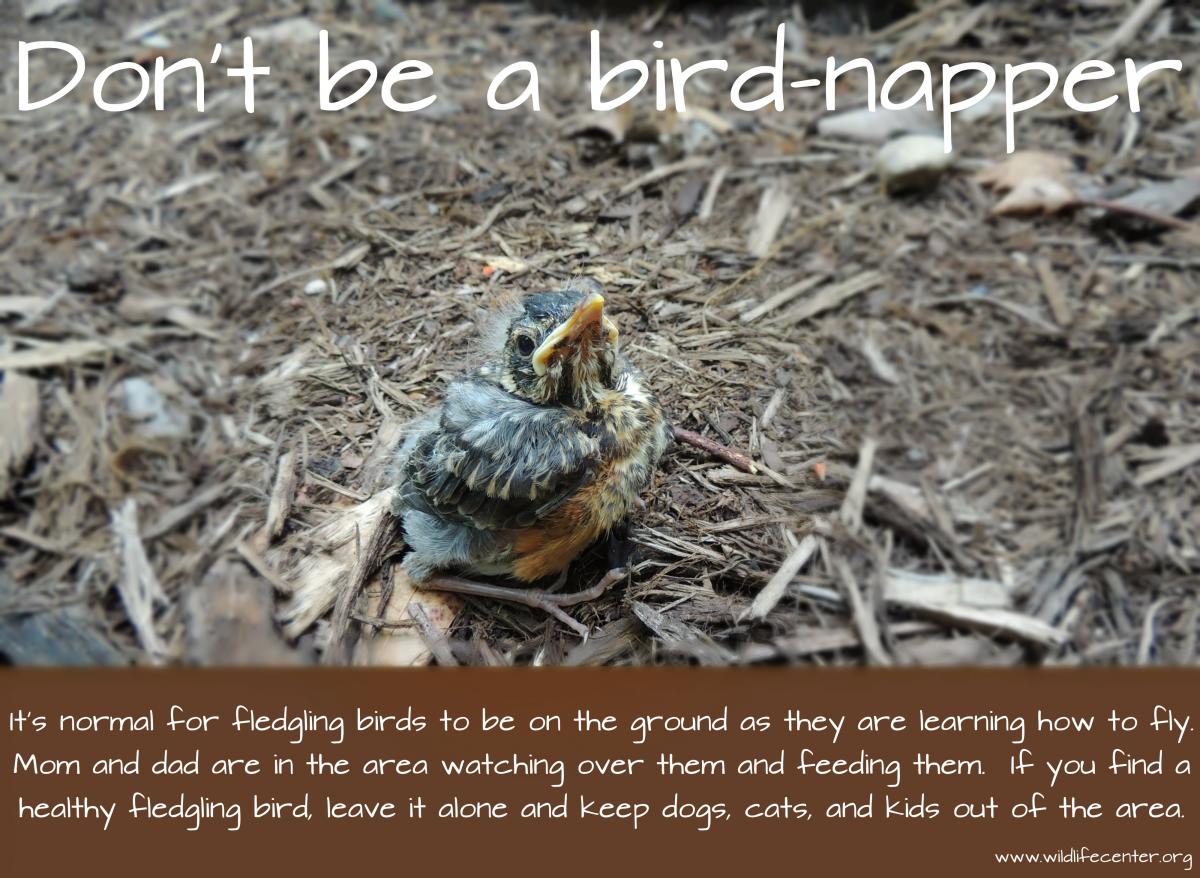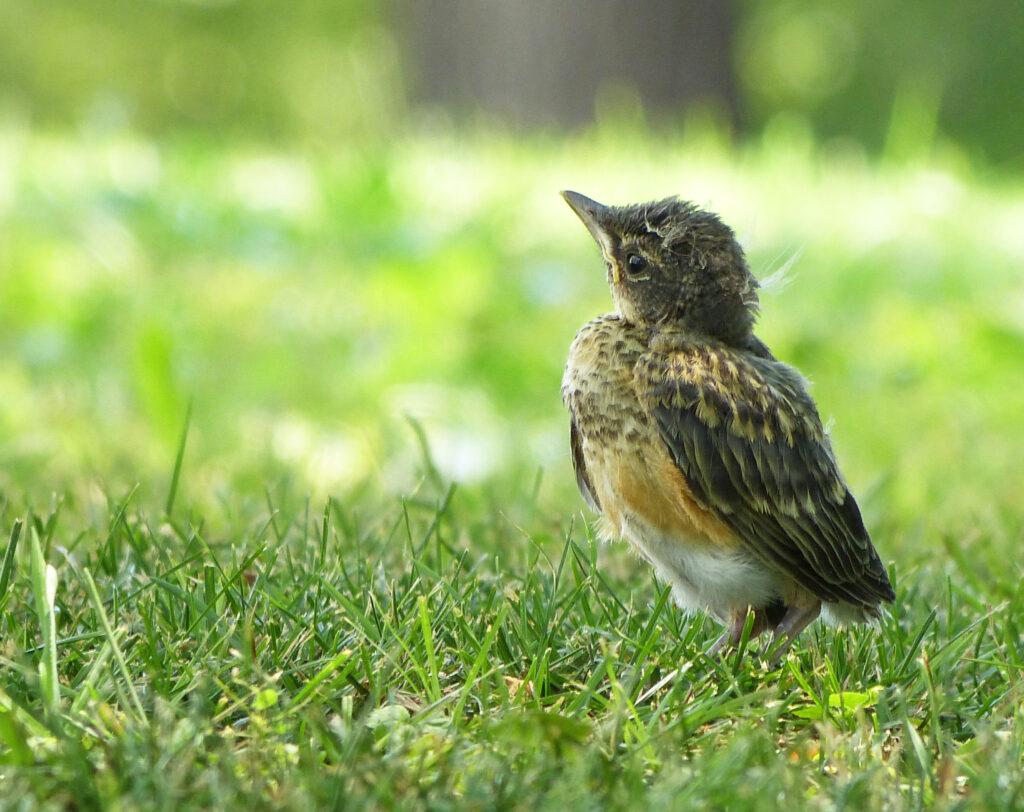Found Young or Injured Birds?
Although it is difficult and often not successful, it is sometimes necessary to try to rehabilitate injured birds or raise young ones . There is good advice on the links below. However, it is VERY difficult for the inexperienced to rehabilitate or raise birds. Raising babies should be left to the parents whenever possible. Note also that it is against U.S. Federal Law to possess eggs, birds, nests, or feathers without a permit or license.
The best thing to do in almost every case is to return the youngster back to where you found them. Do not place them back in the nest as they most likely left on their own accord and will just jump out again. Some steps to take:
Observe the bird: Before taking any action, observe the bird from a distance to see if it is a baby or an adult, whether it is able to fly, and whether it is in immediate danger. If the bird is a baby and appears to be uninjured, it may not need assistance.
Approach the bird slowly: If you need to approach the bird, do so slowly and carefully, avoiding sudden movements that could scare it away or cause it further injury.
Contain the bird: If the bird is small and not able to fly, you can use a box or a carrier to contain it. Line the container with soft materials such as a towel or a blanket, and make sure there are air holes for ventilation. If the bird is a larger species or able to fly, try to gently corral it towards a safe area where it can rest and recover.
Keep the bird warm and quiet: Injured birds often go into shock, so it’s important to keep them warm and quiet. Place the container in a quiet, dark area away from pets, children, and other disturbances.
Contact a wildlife rehabilitator: If you discover an injured bird, it is best to contact a wildlife rehabilitation center or a wildlife rehabilitator near you (see links below) or call your local wildlife official for advice. For obvious reasons, wildlife rehabilitation organizations are all local or at least restricted in the geographical area they serve. You can look them up in the Wildlife Rehabilitation Information Directory. Locating a Wildlife Rehabilitator
Some Rehabilitation Centers in the U.S.
Tri-State Bird Rescue and Research
Raptor Center
National Wildlife Rehabilitators Association
Wild Bird Rehabilitation
Wild Bird Rescue

You can also get information and subscribe to the Journal of Wildlife Rehabilitation
Other Rehabilitation Programs
Avian Haven
Chesapeake Wildlife Sanctuary
Cobequid Wildlife Rehab Centre
International Bird Rescue Research Center
International Wildlife Rehab. Council Outreach for Earth Stewardship
Outreach for Earth Stewardship
Owl Rehabilitation
Raptor Rehabilitation
Raptor Rehabilitation and Research
Wild Bird Fund
Baby Birds
Abandoned Bird
Baby Songbird Rescue
Baby Songbird Rescue 2
What to Do When You Find a Baby Bird
What to do with an Injured or Abandoned Bird
Adult Birds
Caring for Birds of Prey
Rescuing Fallen Birds

Wild birds will absolutely return to a fallen nest, especially if called by their hungry babies. If a bird’s nest is knocked to the ground, return it near it’s original location. If the nest is damaged, the remaining material can be put inside a container with drainage holes (e.g. strawberry container) and wired into place near the original location. Set the babies back into the nest and watch from a distance to make sure the parents find the nest.